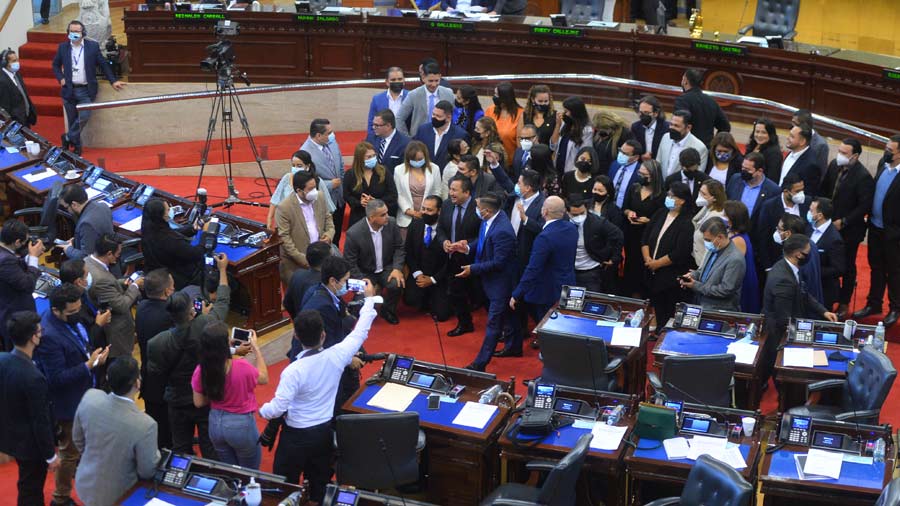
The current Constitution is made so that it is difficult to amend it, so that it is not subject to conjunctural fluctuations.
One of the risks that, according to lawyers, is to amend the Constitution so that it can be amended by referendum is that the Magna Carta may be subject to changes that go against fundamental rights or international treaties.
Currently, the Constitution can be reformed by the Legislative Assembly in two consecutive terms. The first approval of the reform requires a simple majority, ie 43 votes. In the next legislature the change must be ratified by a qualified majority, ie 56 votes.
This system imposes two insurances: one time, as it requires at least three years for the change to take effect. The second is that of consensus, since since 1992 when the Peace Accords were signed which are considered the beginning of democracy in the country, no political party had accumulated a qualified majority in the Legislative Assembly as since of this 1 of May it has the pro-government party New ideas.
Read more: Court of Auditors investigates its auditors for fraud in reports in favor of mayors
But one of the proposals of the team led by Vice President Felix Ulloa for changes to the Constitution involves reforms to the Magna Carta to be ratified through a referendum, meaning that people vote whether they are for or against certain issue as long as the issue to be decided has been a campaign proposal of the popularly elected official to promote it, ie the President of the Republic or legislative bench, although these details have not been revealed by the team Ad hoc.
This proposal would loosen the temporal and consensus controls, as lawyers consider that a referendum lends itself to campaigns aimed at orienting the vote of the citizen by omitting information or manipulating it.
For Eduardo Escobar, of Citizen Action, the legislator serves as a moderator between the petitions of the population and the country’s legal framework that seeks to guarantee the fundamental rights of Salvadorans and more of minorities, that is, the plurality of thought.
Continue reading: Full authoritarianism in the reform of Ulloa: it opens the way to a single party
“Let’s say we want to include the death penalty. What would happen in this case with the current reform process? Although the popular will may be to approve the death penalty, the assembly as it knows that there are international conventions that they forbid it, and jurisprudence that the legislator forbids it even if people ask for it did not approve it, ”the lawyer reasoned.
And he adds: “The current procedure involves modulating popular desires that may go against the protection of fundamental rights, so it serves the legislator to better understand the legal and international implications of such a decision, so not everything it is approved, because there is an implication, “he detailed.
Therefore, this proposal to remove rigidity from the Constitution is not well received by the director of Citizen Action as it opens the door to manipulation.
Besides: Constitutional reforms present a “totalitarian view of the state,” lawyers warn
“What they are proposing to put a referendum on in the end may cause it to lose its permanence and make the process non-rigid. A short-term correlation may change the constitution with a good campaign that distorts or takes advantage of a character’s popularity to ratify the reform. ‘it opens up the possibility of changing it on a whim,’ the expert opined.
In similar terms, the constitutionalist lawyer Francisco Bertrand expressed himself, who does not close himself to the possibility of referendums to know the opinion of the majorities, but that the consultations are not binding, that is to say that they are only of reference or input because officials make decisions.
“It doesn’t seem to me, ratification has to be done via congress. There’s nothing wrong with a popular consultation to see what people think but it’s binding I don’t think it’s convenient,” the lawyer said.
I’ll see: Former councilor of Conchagua is on trial in the Court of Auditors for more than $ 166,000
Bertrand recalled that the Salvadoran Constitution allows the referendum for specific cases such as the annexation of the territory of El Salvador to Central America, but not for general issues.
“It allows for one-off cases, when talking about subjecting reform is not a one-time case then it’s not as simple as subjecting a single point, these kinds of puns are not healthy,” the lawyer concluded.